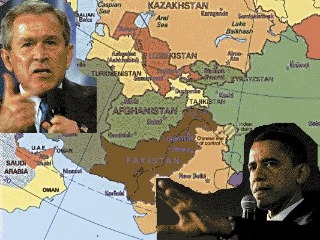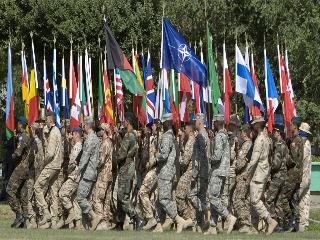“CACI Analyst, November 13, 2013”
What Does It Mean for Uzbekistan and China to be Strategic Partners?
By Farkhod Tolipov (the 13/11/2013 issue of the CACI Analyst)
New Chinese leader Xi Jinping visited Uzbekistan during his tour to Central Asia in September this year. The visit took place ahead of the September summit of the Shanghai Cooperation Organization (SCO) in Bishkek, and was initially perceived as an ordinary diplomatic good-will gesture towards the Central Asian states in connection with Jinping’s first SCO summit. However, in the aftermath of that tour, China surprised many observers with its strategic bounty: China signed large contracts and agreements with the states of the region. Was this primarily a strategic breakthrough of China or the Central Asians’?

“CACI Analyst, October 30, 2013”
AWOL: U.S. Policy in Central Asia
By Stephen Blank (the 30/10/2013 issue of the CACI Analyst)
The U.S. has decided to give up the base at Manas, presumably because that base is not worth retaining once it leaves Afghanistan next year, and will relocate the base to Romania. Washington is instead moving most of its logistics through Pakistan, with a corresponding decline in the use of the Northern Distribution Network. Once U.S. forces leave Afghanistan there will be no military presence in Central Asia to speak of. Second, the TAPI gas pipeline from Turkmenistan through Afghanistan and Pakistan, nominally the centerpiece of America’s New Silk Road initiative, languishes for lack of any financing.

NATO in Afghanistan – Paralysis as Policy?
By Richard Weitz (the 30/10/2013 issue of the CACI Analyst)
NATO’s inability to commit to a definite role in Afghanistan beyond 2014, along with perceived strategic setbacks in Central Asia and the South Caucasus, are reinforcing the narrative promoted by the Taliban, al-Qaeda, Iran, and to a lesser extent Russia and China, that a war-weary West is abandoning Eurasia. Urgent measures are needed during the next months to reverse this perception before it gains irreversible momentum. The perception is already leading regional players to hedge against the expected consequences of a diminished NATO role. NATO needs to reaffirm and clarify its commitment to Afghanistan and Eurasia.



